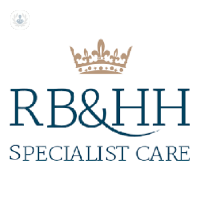Pregnancy and heart disease
Dr Claudia Montanaro - Cardiology
Created on: 11-07-2023
Updated on: 11-16-2023
Edited by: Carlota Pano
How does pregnancy affect heart health?
Pregnancy requires the heart to work harder, in order to provide the mother and the unborn baby with the necessary oxygen and nutrients.
During pregnancy:
- blood volume increases by 30% to 50%
- blood flow increases
- heart rate increases by 20 beats per minute
- plasma volume in the blood increases
- blood pressure decreases, during the first and second trimesters
While these cardiovascular changes are a normal part of pregnancy, the extra cardiovascular demand can put additional stress on the heart and circulatory system. This can put a pregnant woman at a higher risk of complications by worsening pre-existing heart conditions or by leading to the development of new heart problems.

What are the cardiovascular risks associated with pregnancy?
Certain heart conditions can increase the risk of complications during or after pregnancy.
Some examples include:
- Congenital heart disease: A congenital heart disease is a heart condition that is present at birth. Having a congenital heart disease increases the risk of premature birth. If a pregnant woman has a congenital heart disease, there is a risk that her baby will develop a congenital heart disease as well.
- Arrhythmia: An arrhythmia is a heart rhythm problem that causes the heart to beat too fast, too slow, or with an irregular pattern. Arrhythmia in pregnancy can increase the risk of blood clot formation. Blood clots can lead to deep vein thrombosis, pulmonary embolism, stroke, and sudden cardiac death.
- Heart valve disease: Heart valve disease occurs when one of the four valves in the heart doesn’t work as well as it should be able to. Heart valve disease or scarring of the heart valves can make it harder for the body to cope with the increase in blood flow that occurs during pregnancy. This can lead to severe complications.
Can I get pregnant if I have a heart condition?
Many pregnant women with heart conditions are able to have healthy and successful pregnancies. However, the risks vary based on the specific heart condition, how severe it is, and how well it is managed.
There are some heart conditions where major heart surgery is required to treat the condition before a woman is able to get pregnant.
There are other heart conditions where pregnancy is unsafe, due to the very high risk of complications for both the mother and the unborn baby. These conditions include:
- moderate to severe heart failure
- peripartum cardiomyopathy
- severe narrowing of the mitral or aortic heart valves
- enlargement of the aorta
- an aortic valve with two flaps
- coarctation (narrowing) of the aorta
- Eisenmenger's syndrome
- Marfan syndrome
- pulmonary hypertension
Women with high-risk heart conditions may be advised to avoid getting pregnant. If this is the case, it is important to use effective contraceptive methods.
How should I prepare for pregnancy if I have a heart condition?
The best way to ensure a healthy pregnancy is to consult with a cardiologist, preferably several weeks before trying for a pregnancy. This will allow for a complete assessment and review of the specific heart condition, as well as guidance and recommendations on the treatment options available.
In addition, health conditions such as hypertension or diabetes should be well-managed before conception and regularly monitored throughout the duration of pregnancy.
It is also recommended to review any current medications (both for heart conditions and for other health conditions). Some medications may need adjustment or substitution during pregnancy to minimise the potential risks to the unborn baby.
Lifestyle changes, including a healthy diet and stress management, are also important to optimise cardiovascular health.
Close monitoring is essential throughout and after pregnancy. For this reason, it is important that pregnant women with heart conditions attend all prenatal check-ups so that the healthcare team can keep track of both the mother and the unborn baby’s health. Tests such as ultrasounds may be performed.



